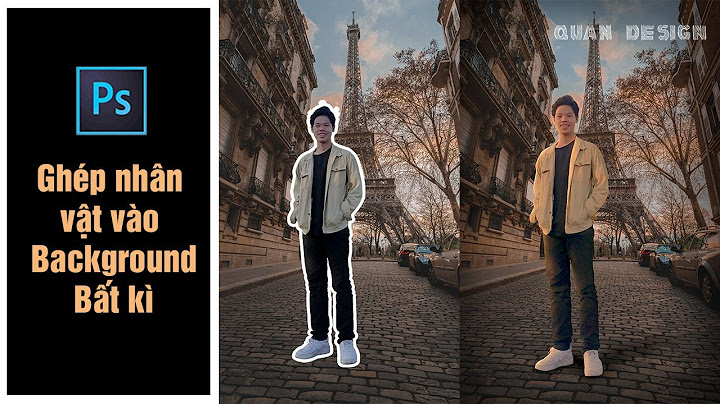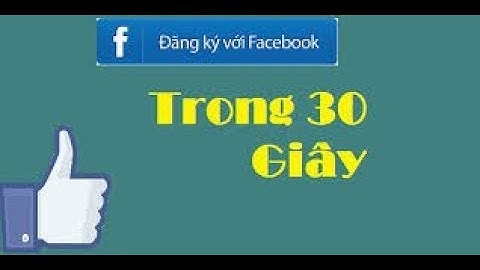We denounce with righteous indignation and dislike men who are so beguiled and demoralized by the charms of pleasure of the moment, so blinded by desire, that they cannot foresee the pain and trouble that are bound to ensue; and equal blame belongs to those who fail in their duty through weakness of will, which is the same as saying through shrinking from toil and pain. They were sparing of the Heat-Ray that night, either because they had but a limited supply of material for its production or because they did not wish to destroy the country but only to crush and overawe the opposition they had aroused. In the latter aim they certainly succeeded. Sunday night was the end of the organised opposition to their movements. When you are designing with Lorem Ipsum, you diminish the importance of the copy by lowering it to the same level as any other visual element. The text simply becomes another supporting role, serving to make other aspects more aesthetic. Instead of your design enhancing the meaning of the content, your content is enhancing your design.
– Hyet Malik They were sparing of the Heat-Ray that night, either because they had but a limited supply of material for its production or because they did not wish to destroy the country but only to crush and overawe the opposition they had aroused. In the latter aim they certainly succeeded. Sunday night was the end of the organised opposition to their movements. Below are the original Latin passagesIn certain circumstances and owing to the claims of duty or the obligations of business it will frequently occur that pleasures have to be repudiated and annoyances accepted. The wise man therefore always holds in these matters to this principle of selection: he rejects pleasures to secure other greater pleasures, or else he endures pains to avoid worse pains. Sunday night was the end of the organised opposition to their movements. After that no body of men would stand against them, so hopeless was the enterprise. - 100% responsive
- 99% client satisfaction
- Best business theme 2018
- Duty or the obligations of business
In certain circumstances and owing to the claims of duty or the obligations of business it will frequently occur that pleasures have to be repudiated and annoyances accepted. The wise man therefore always holds in these matters to this principle of selection: he rejects pleasures to secure other greater pleasures, or else he endures pains to avoid worse pains. They were sparing of the Heat-Ray that night, either because they had but a limited supply of material for its production or because they did not wish to destroy the country but only to crush and overawe the opposition they had aroused. In the latter aim they certainly succeeded. Sunday night was the end of the organised opposition to their movements. After that no body of men would stand against them, so hopeless was the enterprise. Below are the original Latin passagesThe strength of lorem ipsum is its weakness: it doesn’t communicate. To some, designing a website around placeholder text is unacceptable, akin to sewing a custom suit without taking measurements. The strength of lorem ipsum is its weakness: it doesn’t communicate. To some, designing a website around placeholder text is unacceptable, akin to sewing a custom suit without taking measurements. Sed ut perspiciatis, unde omnis iste natus error sit voluptatem accusantium doloremque laudantium, totam rem aperiam eaque ipsa, quae sunt, explicabo. Nemo enim ipsam voluptatem, quia voluptas sit, aspernatur aut odit aut fugit, sed quia consequuntur magni dolores eos. I must explain to you how all this mistaken idea of denouncing of a pleasure and praising pain was born and I will give you a complete account of the system, and expound the actual teachings of the great explorer of the truth, the master-builder of human happiness . THE CONTENT MARKETING INSTITUTE PRESENTS THE STORY OF CONTENT: RISE OF THE NEW MARKETING EXECUTIVE PRODUCER BRIGHTCOVE PRODUCER AMANDA SUBLER PRODUCED BY ONSCENE PRODUCTIONS FEATURING JOE PULIZZI • JAY BAER • ANN HANDLEY • DAVID MEERMAN SCOTT KIRK CHEYFITZ • JULIE FLEISCHER • SCOTT STRATTEN • ROBERT ROSE • MARCUS SHERIDAN R I S E O F T H E N E W M A R K E T I N G“You can’t rely on the media. You have to become the media.” Lasse Høgfeldt, Jyske Bank A CO N T E N T M A R K E T I N G I N S T I T U T E F I L M S C R E E N I N G K I TWELCOME! I hope you enjoy The Story of Content! On behalf of myself, Producer Amanda Subler, and Executive Producer Brightcove, we are proud to present our documentary, The Story of Content: Rise of the New Marketing. Creating this film has been a labor of love, and our team is so glad that you are taking time to view it - whether you are on your own, with colleagues or friends, or with a group of your industry peers. Content marketing has already altered business and media forever, significantly changing the way marketers and customers communicate and interact. The evolution of content marketing is a story I’ve been telling since 2007. But seeing it all put together in this documentary made me realize it has become much bigger than all of us - but it’s because of all of us. I hope this documentary inspires you to advance YOUR practice of content marketing - and share with your network the valuable role it plays in our professional lives today. Thank you for being an integral part of “The Story,” and please let me know how our team can be of assistance In an effort to continue the dialogue, we’ve produced this short screening kit that will enable you to explore the documentary and its theme more deeply, and help you share the conversation with your executives, your colleagues, your associations and beyond. Enjoy! Yours in Content, ####### Joe Pulizzi Founder Content Marketing Institute ####### SCREENING KIT Documentary Discussion Guide:
MARKETERS SEEKING BUY-IN
- After seeing the “Will It Blend” series of videos, Roxberry Smoothies owner Holly Jackman was impressed enough to start using Blendtec blenders in her stores. How can an example like this be used to promote the use of content marketing in your own company?
- What do you think would have a greater impact on a person’s decision to buy a product from a business like yours: a television or online ad, informational or educational content, or social media content? What evidence can you discuss to support your assertion?
- Do you feel companies like Red Bull are doing a good job of giving audiences what they want when it comes to the content they share online? What techniques are they using that might also help your company increase its audience interest and/or engagement?
- Throughout The Story of Content, several experts allude to the idea that traditional marketing discusses brand value, while content marketing actually provides it. The Furrow magazine is a great example of this, as it was built on the John Deere Company’s desire to provide farmers with an accurate, unbiased source of useful information. Do you agree with this comparison? How do you see your own business using content marketing to place a greater focus on meeting your customers’ needs, rather than on your brand’s interests?
- In the film, Robert Rose (01:06) asserts that content is “really the only way that a business, going forward, is going to be able to differentiate itself in a very crazy, noisy marketplace.” Do you agree with this statement? What ways do you think your business could do a better job of distinguishing itself from the competition? What role do you see content playing in making that happen?
- Marcus Sheridan (26:30) shares the story of how he saved his struggling pool business by using content to answer specific customer questions on fiberglass pools. Becoming known as the “Wikipedia of fiberglass swimming pools” gave Marcus’s business a significant advantage with customers when they were ready to make a purchase. What other opportunities and advantages do you think content marketing can provide for your business?
- Doug Kessler (28:50) says that, through content marketing, businesses can transform themselves in unexpectedly positive ways — if they are willing to let go of the idea that they “own” everything about their brand. What resistance do you think you would encounter in convincing your executives to make a broad cultural change like this? In what ways would your organization benefit from enabling consumers to have greater control over the ways they interact with you?
Documentary Discussion Guide:
QUESTIONS FOR
DOCUMENTARY FILM
ENTHUSIASTS
- Julie Fleischer (06:17) asserts that the first ads were really just content that was connecting with people around value, with soap operas like The Guiding Light and As the World Turns serving as some of the earliest examples. What do you think caused the advertising industry to move away from this, in favor of product-focused messaging?
- Why do you think it’s now circling back to a focus on storytelling and entertainment content?
- After seeing the “Will It Blend” series of videos, Roxberry Smoothies owner Holly Jackman was impressed enough to start using Blendtec blenders in her stores. Do you feel that this is a common result of viewing viral video content, or is this a unique case, and why?
- What do you think has more impact on a person’s decision to buy a product: a television ad, branded video content, or social media content? Why do you feel this way?
- What would it take for you to read a company’s content online and decide you want to learn more about the company, or would like to talk about it on social media?
- Do you feel companies like Red Bull are doing a good job of giving audiences what they want when it comes to the content they share online? What suggestions would you offer to companies to help make their content more interesting to you?
- Do you trust what brands say in advertisements? Does your opinion on this change when it comes to online content? Why (or why not)?
- How do you recognize a good story? What are its characteristics? Do these rules change when the story comes from a company, rather than an individual storyteller? If so, how?
Documentary Discussion Guide:
ENTERPRISE BUSINESSES
- Throughout The Story of Content, several experts allude to the idea that traditional marketing discusses brand value, while content marketing actually provides it. The Furrow magazine is a great example of this, as it was built on the John Deere Company’s desire to provide farmers with an accurate, unbiased source of useful information. Do you agree with this comparison? What can businesses like yours do to place a greater focus on your audience’s needs in the content you create?
- Robert Rose contends (01:06) that content is “really the only way that a business, going forward, is going to be able to differentiate itself in a very crazy, noisy marketplace.” Do you agree with this statement? In what ways do you think your business could do a better job of using content marketing to distinguish itself from your competition?
- Marcus Sheridan (28:20) describes the way to approach content marketing thusly: “You can approach content marketing as a program or you can approach it as a culture. Programs, they live and then they die. They are forced; they are not enjoyed, typically. But a culture becomes who you are.” Would content be a good fit in your current organizational culture? What would need to change in order to implement the discipline strategically and effectively? Are these changes that are desirable to your business, on the whole?
- Robert Rose also discusses his belief (33:16) that content marketing is a deliberately developed skill that brands are going to have to get good at: “Whether they outsource the execution of it, or they actually develop the talent within to actually shoot video, create imagery I think is not as important as the business getting good at managing a marketing process that is at its heart, a media company like process.” What do you think it really means for a business to start functioning as a media company? What do you see as the barriers to your organization doing this? What resources or training would you likely need to make that happen
- Todd Wheatland (31:48) asserts that getting serious with content marketing starts with “appointing someone, or understanding that there needs to be someone, who acts as custodian of the audience’s viewpoint within the organization.” Does your organization have someone who can (or already does) fulfill this role? If not, what type of training or education do you think you would need to be able to incorporate this function successfully? Does that kind of training exist?
Kirk Cheyfitz asserts (10:13) that today’s companies need to integrate themselves into things that are valuable and important to the audience: “You have to deliver that to them and manifest your interest — not just with words and pretty pictures, but by actually doing stuff that matters, as well.” What stories might your organization be able tell that would communicate what you stand for and help you connect with your audience without directly discussing your products and/or services? |





















